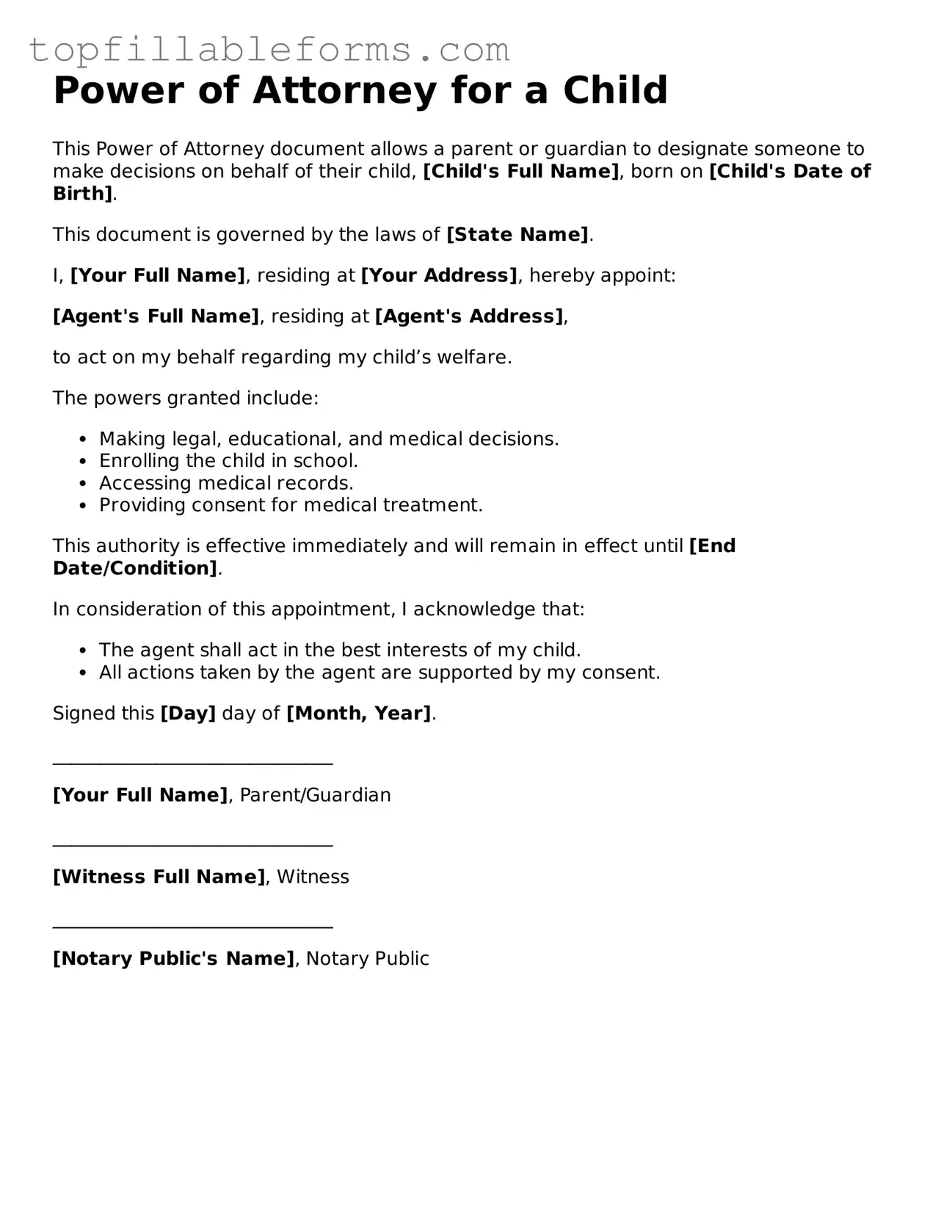Free Power of Attorney for a Child Form
The Power of Attorney for a Child form is a legal document that allows a parent or guardian to grant another adult the authority to make decisions on behalf of their child. This can include matters related to education, healthcare, and general welfare. Understanding this form can provide peace of mind for parents who need to ensure their child's needs are met in their absence.
Open Power of Attorney for a Child Editor Here

Free Power of Attorney for a Child Form
Open Power of Attorney for a Child Editor Here
Finish the form now and be done
Finish your Power of Attorney for a Child online by editing, saving, and downloading fast.
Open Power of Attorney for a Child Editor Here
or
▼ PDF File
